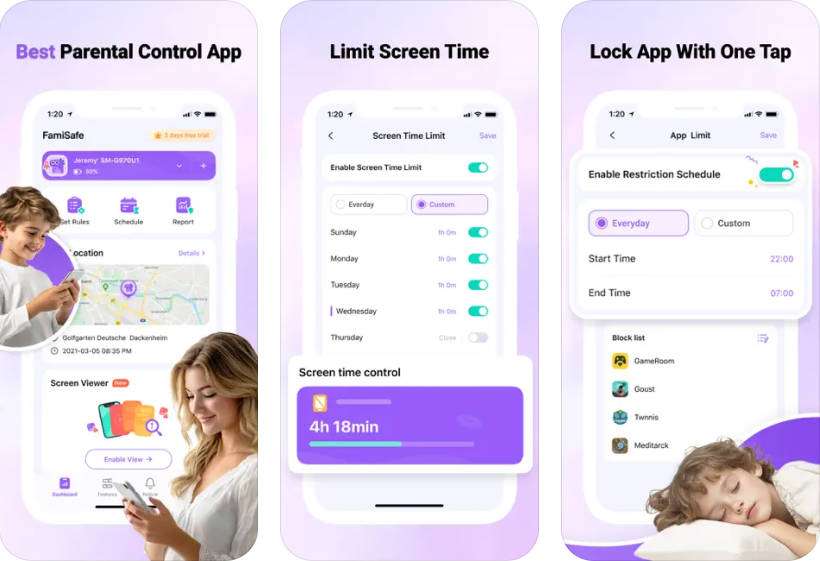If you’ve ever seen ISTG meaning come up in a text or comment and thought, “Wait, what does that mean?”, you’re not alone. Online slang changes daily, and it can feel like teens are speaking a different language. This guide explains the meaning of ISTG, how it’s used in texting and chats, where it appears most, the risks of misunderstanding it, and what parents can do to keep up.

In This Article
Part 1. What Does ISTG Mean?
At its simplest, ISTG stands for “I Swear To God.” The words themselves aren’t new; what’s changed is how they’ve been shortened for quick online use. Teens use ISTG to add emphasis—either to sound honest or to vent frustration—without typing a full sentence.
In friendly chats, ISTG often reads like reassurance: “ISTG I didn’t touch your phone.” In other moments, it signals annoyance: “ISTG this app keeps crashing.” The tone is everything; the same four letters can land as sincere, irritated, or sarcastic depending on context.
Part 2. ISTG in Everyday Texts and Online Chats
When people search “ISTG meaning in text” or “what does ISTG mean in texting”, they’re really asking how it plays out in real conversations. The answer depends on the vibe of the chat—and whether the speaker is being literal or joking.
Tip 💡
Don’t read ISTG literally every time. Teens often use it loosely, sometimes as a joke or a quick way to add emotion.
In private texts, ISTG most often works as a quick trust signal—“I promise.” On public platforms like Snapchat, Instagram, or TikTok, it frequently leans playful or sarcastic under memes, trends, and reaction posts. Reading the room (and the relationship between speakers) helps you decide whether ISTG is sincere or just for fun.
Part 3. Common Situations Where Teens Use ISTG
Meaning of ISTG becomes clearer when you watch it in context. In casual reassurance, a teen might text, “ISTG I’ll be there in 10.” Here, ISTG adds weight to a simple promise. As social media commentary, you’ll see lines like, “This filter is hilarious, ISTG.” It amplifies the emotion without a long explanation.
During heated moments, ISTG can feel like a warning: “ISTG if you say that again…” In sarcastic banter among friends, it flips meaning entirely—“This class is five-star entertainment, ISTG.” The same acronym shifts tone depending on the situation, which is why older readers sometimes misread it.
Part 4. Risks and Misunderstandings Around ISTG
For most teens, ISTG is harmless slang. Still, it can cause friction if people take it the wrong way. Because it references “God,” some audiences view ISTG as inappropriate in formal settings. A teen tossing it into a school email or a message to an unfamiliar adult might come across as careless without meaning to.
Tone is the other challenge. A message like, “ISTG I’m serious,” may feel supportive between friends but can read as aggressive to a parent. These small misreads can strain conversations and turn a simple promise into a perceived argument.
Example of a misread: a parent sees “ISTG I didn’t do it.” and hears defiance, while the teen intended, “I promise I’m telling the truth.” Awareness on both sides reduces this kind of friction.
Part 5. How Parents Can Keep Up With Slang Like ISTG
Slang changes overnight—today it’s ISTG, tomorrow it’s “FR” or “ONG.” Parents don’t need to memorize every acronym, but staying curious helps. Asking, “Hey, what does ISTG mean?” opens a conversation instead of a conflict and gives teens room to explain how they actually use the term with friends.
When slang intersects with risky behavior or sensitive topics, extra support can help families stay informed. That’s where tools like FamiSafe come in. FamiSafe can flag suspicious words or acronyms in chats, send real-time alerts when risky language appears, and show activity trends across apps like Snapchat, WhatsApp, and TikTok—without requiring parents to read every message.

Try FamiSafe to stay informed—without constant snooping.
Conclusion
So, what does ISTG mean? It’s short for “I Swear To God” and is used to add weight, frustration, or sarcasm in digital conversations. For teens, it’s a quick, emotional cue. For parents and other readers, understanding tone and context is crucial to avoid unnecessary conflict. By staying curious—and using supportive tools like FamiSafe when needed—families can bridge the language gap and keep online spaces safer.
Frequently Asked Questions
-
Q1. Is ISTG a bad word?
No. ISTG isn’t inherently offensive, but because it references “God,” some people prefer avoiding it in formal or sensitive contexts. -
Q2. What does ISTG mean on Snapchat or TikTok?
On these platforms, ISTG often shows up in captions or comments. It can be sincere—“ISTG this trend is everywhere”—or sarcastic, depending on the vibe. -
Q3. Why do teens use abbreviations like ISTG?
They save time, convey emotion instantly, and signal in‑group familiarity among friends online. -
Q4. How can parents keep up with online slang?
Stay curious, ask your child about new terms, and consider using tools like FamiSafe to get alerts when potentially risky slang appears in chats.



